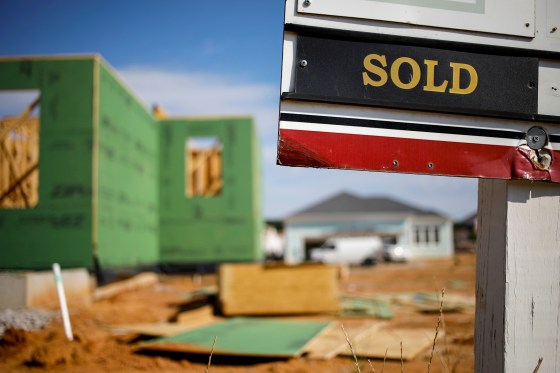Average 30-year U.S. mortgage rates have hit 6.7%, the highest level since 2007, mortgage giant Freddie Mac reported Thursday.
The latest measure represents an increase from 6.29% seen last week. There remains a large dispersion in rates, Freddie Mac said, with some lenders having breached 7%, according to Mortgage News Daily, representing a 20-year high.
"This means that for the typical mortgage amount, a borrower who locked-in at the higher end of the range would pay several hundred dollars more than a borrower who locked-in at the lower end of the range," Freddie Mac said Thursday. "The large dispersion in rates means it has become even more important for homebuyers to shop around with different lenders."
This time last year, mortgage rates were at less than 3%. The surge in home borrowing costs has been sparked by the Federal Reserve’s raising interest rates as it seeks to slow the economy and reduce overall demand, including demand for loans.
The higher mortgage rates mean it’s now costlier to buy a home with a 30-year bank loan, the main reason the S&P CoreLogic Case-Shiller index showed Tuesday that home prices in 20 large U.S. cities fell for the first time since March 2012, declining by 0.44% in July.
San Francisco (-3.6%), Seattle (-2.5%) and San Diego (-2%) had the biggest declines.
Mortgage rates tend to follow the prices of bond yields, which have also surged. Tuesday, they climbed to nearly 4%, approaching their highest levels since summer 2008. Investors are demanding higher yields on bonds as borrowing becomes riskier in an inflationary environment. Inflation erodes the value of a bond’s future payments.
If bond yields continue to move higher, mortgage rates will, too, said Matt Graham, the founder and CEO of MBS Live mortgage data group.
If they don’t, rates may not go much higher.
"We may already be looking at the ceiling levels for mortgage rates unless Treasuries manage to press significantly" higher, Graham said in an email.

